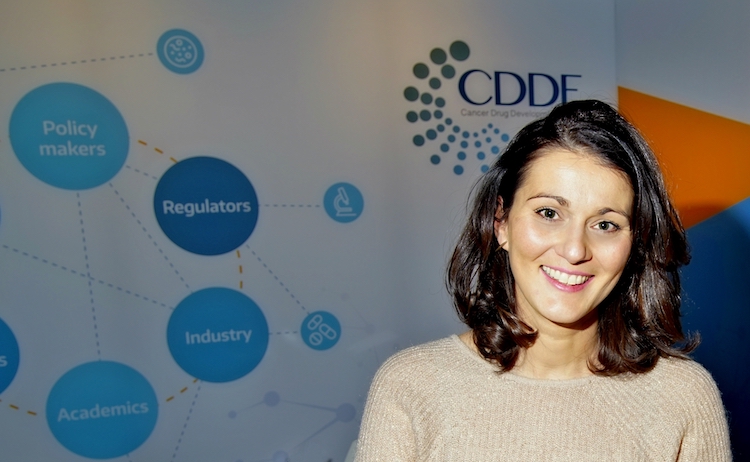Fighting the good fight

Cancer Drug Development Forum (CDDF) has played an active role in improving the efficiency of cancer drug development since 2001. Marjorie Recorbet, association manager of CDDF, tells HQ about how they evaluate their advocacy efforts in the rapidly changing and inherently challenging environment.
What unique value does CDDF contribute to the cancer drug development sector?
Cancer is one of the leading causes of morbidity and mortality worldwide. The incidence of cancer rising - with the World Cancer Report, published by the International Agency for Research on Cancer (IARC), estimating that the cancer burden will rise to 70% in the next two decades. Against this background, there is an urgent need for rapid licensing and market availability of innovative, more effective oncology drugs.
Established in 2001 and with its office based in Brussels, CDDF is a unique platform that unites experts from academia, the pharmaceutical industry, regulatory authorities (including the European Medicines Agency and US Food and Drug Administration), payers, healthcare providers and patient advocates and encourages a unique collaborative approach, where experts engage in frank and open discussions exploring innovative ideas with the goal of creating an ideal scientific, regulatory and commercial environment for the clinical development of cancer drugs. The focus is on Phase 1 trials, with early dialogue encouraged between regulators and pharmaceutical companies, to achieve valuable input on the design of Phase 2 and 3 trials.

What are some of the biggest breakthroughs in cancer drug development over the past two decades?
Extraordinary progress in oncology drug development have improved survival rate since then: anti-cancer treatments have emerged including the recent wave of immuno-oncology based therapies; more drugs have been approved within oncology than in any other therapy area; and advances in technologies have enabled to process large quantity of health data. This rise in new oncology therapies is expected to continue over the coming years.
What are the biggest challenges facing cancer drug development today?
New breakthroughs such as personalised medicine and immunotherapy are throwing up complex issues and unprecedented challenges for the oncology community. While developments create new opportunities, they also raise challenges including identifying the patients most likely to benefit from specific therapies or identifying the best model to take forward. In addition, therapies need to have tolerable safety profiles at a cost health systems can afford, and to overcome inequities in access due to the different health system assessment criteria in European countries.
When it comes to advocacy, how do you measure the impact you’re achieving?
CDDF has an upwind approach to advocacy. Rather than focusing our efforts on policy lobbying, we work upstream by enabling discussions between key stakeholders including subject matter experts and regulatory authorities on current and future challenges of drug development. The benefit of engaging with decision-makers very early in the process allows them to make the most appropriate decisions that improve the outcome of patients with cancers.
What does the upwind approach entail?
Being so upstream in the drug development process and in the policy making process, impact measurement is clearly a challenging task, especially over the short run. Nevertheless, to help us strive our efforts on the most important topics and in a right way, we use multiple techniques to measure our impact. We run qualitative and quantitative feedback surveys after each major workshop or conference we organise; we monitor repeated attendance by key participants, being it from the academia, the industry or the regulatory authorities and we track our ability to feature publications in oncology journals. Additionally, we regularly evaluate our impact through meetings with our experts in the field. This impact measurement strategy has enabled us to continuously improve our focus over the years.
Of course, over the long run, we measure our impact by the progress of innovations in cancer treatment.
What are the latest trends and tools that you find most helpful to enhance your advocacy efforts?
Our number one value is our ability to connect and engage with key stakeholders. So traditional face-to-face conversations are at the centre of our advocacy efforts. In addition, we use social and online media as a tool to complement our efforts, especially Twitter, which is very helpful to increase engagement and awareness. We are also concentrating efforts on our online communication and marketing to build a base of online supporters. We are currently developing corporate videos to improve our chances of being heard and known by our intended audience.
What are your latest goals?
In terms of our current priorities and in lack of a common EU health care system, we are currently focusing our efforts on overcoming some inequities in access to innovative oncological drugs at national levels. There is a need for a better science-based common position on methodology, greater commitments by politicians, health care decision makers and payers to ensure a widely equal access for patients across the EU to innovative anti-cancer medicines.
What advice would you give to other association leaders?
What I have learned through my association career sums up well in this African proverb:
“If you want to go fast, travel alone. If you want to go far, travel together.”
This is valid within and beyond the association. Within the association, I think that leader should spend sufficient time and energy to recruit, coach and develop the talented individuals that will help reach the association’s goals. Beyond the association, I think that collaboration is key to improve outcomes and I would encourage organisations to partner-up to be more efficient in reaching their mission.
Learn more about CDDF at cddf.org
Other Articles
About Us
Supported by the Union of International Associations (UIA), the International Association of Professional Congress Organisers (IAPCO) and the Interel Group, the global public affairs and association management consultancy, Headquarters Magazines serve the needs of international associations organising worldwide congresses.














